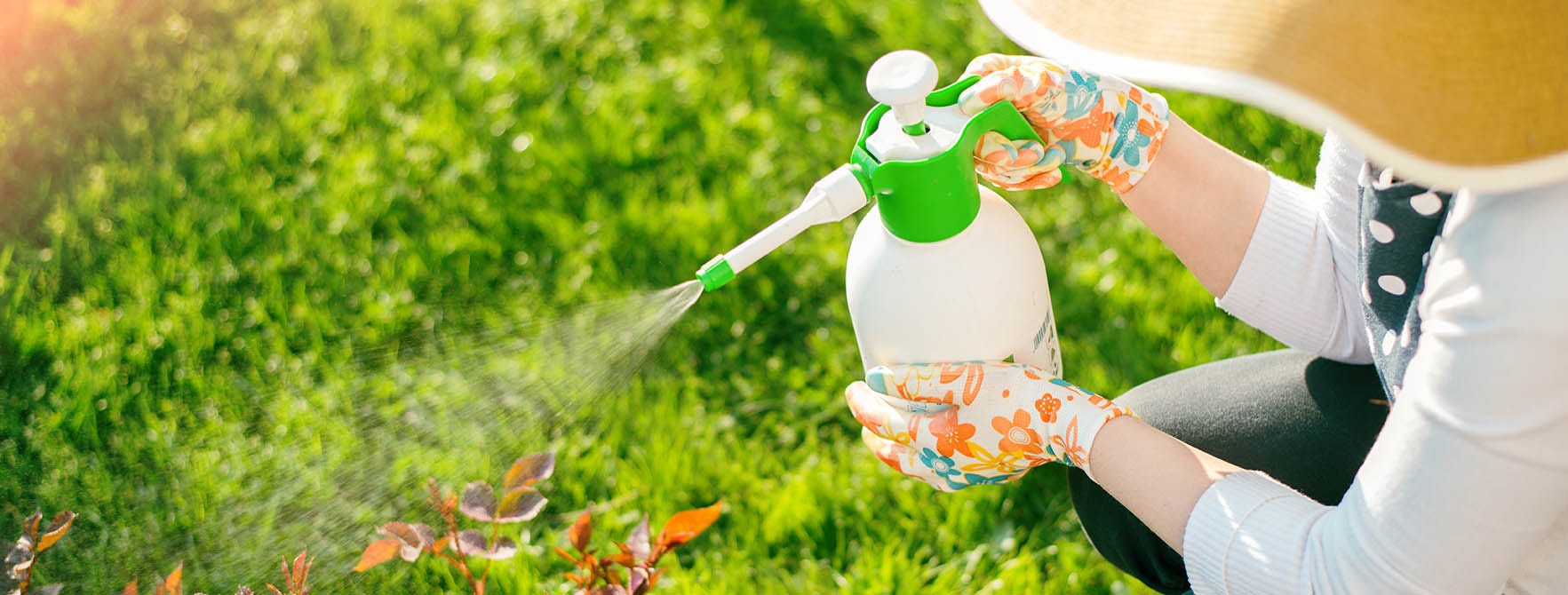Understanding the importance of natural pest control
Protecting your garden from pests is essential for maintaining healthy plants and ensuring a bountiful harvest. However, using harsh chemicals to manage pests can have negative effects on your garden’s ecosystem, harming beneficial insects, polluting the soil, and even affecting the flavor of your produce. Natural pest control methods offer a safer and more sustainable way to protect your garden. By understanding the balance of your garden’s ecosystem and using techniques that work with nature rather than against it, you can effectively manage pests without the need for synthetic chemicals. Natural pest control not only helps preserve the health of your garden but also supports a more vibrant and diverse environment.
The use of natural methods for pest control is becoming increasingly popular as gardeners seek safer alternatives to chemical pesticides. These methods are not only better for the environment but also promote the long-term health of your plants. By focusing on prevention and using environmentally friendly techniques, you can create a garden that is resilient to pests and thriving with life. Moreover, natural pest control methods often involve fostering beneficial insects, which can help maintain the ecological balance in your garden and reduce the likelihood of infestations in the future.
Identifying common garden pests
Before you can effectively protect your garden, it is important to identify the pests that are causing problems. Common garden pests include aphids, caterpillars, slugs, snails, and beetles, each of which can cause significant damage to your plants if left unchecked. Aphids, for example, are small, soft-bodied insects that suck the sap from plant leaves, causing them to wilt and die. Caterpillars, the larvae of moths and butterflies, can quickly defoliate plants, leaving them vulnerable to disease. Slugs and snails are notorious for their ability to chew through leaves and stems, particularly in damp, shaded areas of the garden.
Identifying the specific pests in your garden is the first step in choosing the right natural control methods. Inspect your plants regularly for signs of damage, such as holes in leaves, discolored spots, or the presence of insect eggs. Look underneath leaves and around the base of plants, where many pests like to hide. Understanding the habits and lifecycle of each pest will help you implement targeted strategies that effectively reduce their numbers without harming other beneficial organisms in your garden.
The role of beneficial insects
Beneficial insects play a crucial role in natural pest control. These insects, such as ladybugs, lacewings, and predatory beetles, feed on common garden pests, helping to keep their populations in check. For instance, ladybugs are voracious predators of aphids, consuming hundreds in their lifetime. Lacewing larvae, often referred to as “aphid lions,” also prey on aphids, as well as caterpillars and other soft-bodied insects. By encouraging these beneficial insects to inhabit your garden, you can reduce the need for chemical pesticides and maintain a healthier, more balanced ecosystem.
To attract beneficial insects, plant a variety of flowers that provide nectar and pollen, such as marigolds, dill, and fennel. Avoid using broad-spectrum insecticides that can harm these helpful creatures. Providing shelter, such as small piles of rocks or undisturbed areas of soil, can also encourage beneficial insects to take up residence in your garden. By fostering a habitat that supports these natural predators, you create a self-sustaining system where pests are kept in check naturally.
Companion planting as a natural defense
Companion planting is a traditional gardening technique that involves growing certain plants together to enhance growth and protect against pests. Some plants naturally repel insects, while others attract beneficial predators that feed on pests. For example, planting marigolds alongside tomatoes can help deter aphids and nematodes, while basil planted near peppers repels whiteflies and spider mites. Similarly, growing garlic or onions around the edges of your garden can keep away a wide range of insects due to their strong odor.
Companion planting not only helps in pest control but also promotes healthy plant growth by improving soil fertility and providing natural shade or support. For instance, beans can be planted with corn, where the beans add nitrogen to the soil, benefiting the corn, while the corn provides a natural trellis for the beans to climb. By strategically placing plants that complement each other, you can create a garden that is more resistant to pests and diseases, reducing the need for chemical interventions.
Examples of effective companion planting combinations
There are many effective companion planting combinations that can help protect your garden from pests. For instance, planting nasturtiums near squash and cucumbers can deter squash bugs and cucumber beetles, while dill planted near cabbage can attract beneficial wasps that prey on cabbage worms. Another effective combination is the planting of rosemary near carrots, as the rosemary’s strong scent can mask the smell of the carrots, confusing carrot flies and preventing them from laying eggs on your crops. Experimenting with different companion planting arrangements can yield positive results and provide a natural defense against garden pests.
Using natural predators and biological controls
Natural predators and biological controls are another effective way to manage garden pests without chemicals. Introducing predators like ladybugs, parasitic wasps, or nematodes into your garden can help control pest populations naturally. Ladybugs, for example, are excellent at controlling aphid populations, while parasitic wasps can target caterpillars and other harmful insects. Nematodes, microscopic worms that live in the soil, are particularly effective against root-feeding pests such as grubs and larvae. These biological controls work by either directly consuming pests or by parasitizing them, ultimately reducing their numbers.
Biological controls are especially useful in organic gardening, where maintaining the natural balance of the ecosystem is a priority. These controls are species-specific, meaning they target only the pests without harming other beneficial organisms or plants. It is important to choose the right type of predator or biological control based on the specific pests you are dealing with. Regular monitoring of pest levels and the effectiveness of the controls will help you adjust your strategy as needed. By using natural predators and biological controls, you can manage pests in a way that is both environmentally friendly and sustainable.
Homemade remedies for pest control
For those who prefer a more hands-on approach, homemade remedies can be an effective way to control garden pests. Many common household items can be used to create natural pest repellents and treatments. For example, a simple soap spray made from water and mild dish soap can be used to kill aphids and other soft-bodied insects. Just spray the solution directly onto the pests, making sure to cover the undersides of leaves where they often hide. Be sure to rinse the plants with clean water after a few hours to prevent soap buildup.
Another effective homemade remedy is neem oil, which is derived from the seeds of the neem tree. Neem oil is a natural insecticide that can disrupt the life cycle of pests, preventing them from feeding and reproducing. It is effective against a wide range of insects, including aphids, whiteflies, and spider mites. Simply mix the neem oil with water and a few drops of dish soap, then spray it on your plants every few days until the pest problem is under control. Other natural remedies include garlic and chili pepper sprays, which can repel insects with their strong odors.
Benefits and limitations of homemade remedies
While homemade remedies can be effective, they also have limitations. These solutions often require frequent reapplication and may not be as potent as commercial pesticides. Additionally, some remedies can cause damage to plants if not used correctly, such as soap sprays that can burn leaves if left on too long. However, the benefits of using homemade remedies include their low cost, ease of use, and the fact that they are generally safer for the environment and for people and pets. When using homemade remedies, it is important to test them on a small area of your plants first to ensure they do not cause harm.
Maintaining a healthy garden environment
The best defense against pests is a healthy, well-maintained garden. Healthy plants are less susceptible to pest infestations and can recover more quickly if they are attacked. To maintain a healthy garden, focus on good soil management, proper watering, and regular pruning. Composting and mulching can help improve soil fertility and structure, providing plants with the nutrients they need to thrive. Proper spacing of plants also ensures good air circulation, reducing the likelihood of disease and pest problems.
Regular monitoring of your garden is crucial to catching pest problems early. Inspect your plants regularly for signs of damage or disease, and take action at the first sign of trouble. Removing dead or diseased plants promptly can prevent pests from spreading to healthy plants. Encouraging biodiversity in your garden by planting a variety of species can also help keep pests in check, as different plants attract different insects, reducing the chances of any one pest becoming a serious problem. By maintaining a healthy garden environment, you create a strong foundation that makes it difficult for pests to gain a foothold.
Commitment to sustainable gardening
Protecting your garden from pests without using harsh chemicals is not just about finding quick fixes; it is about committing to sustainable gardening practices that promote long-term health and balance. By understanding the relationships between plants, pests, and beneficial insects, you can create a garden that thrives naturally and requires minimal intervention. Sustainable gardening is a holistic approach that considers the health of the entire ecosystem, from the soil to the pollinators, ensuring that your garden is not only productive but also a haven for wildlife.
Making a commitment to sustainable gardening means continually educating yourself about natural pest control methods, experimenting with different techniques, and being patient as you work to create a garden that is resilient and self-sustaining. It also involves sharing your knowledge with others, helping to spread the word about the benefits of natural pest control and sustainable gardening. By embracing these practices, you can enjoy the beauty and bounty of your garden while also contributing to the health of the planet.





